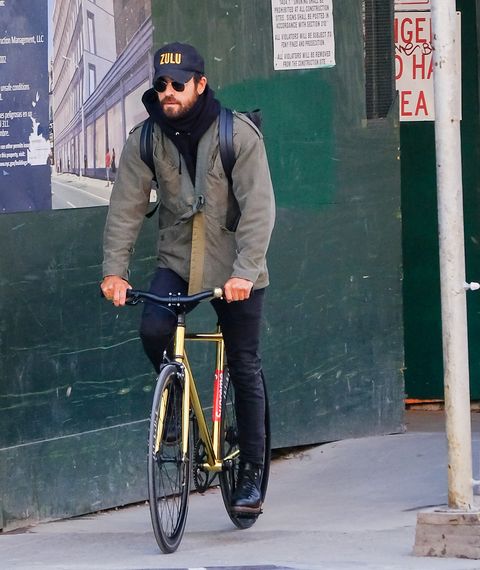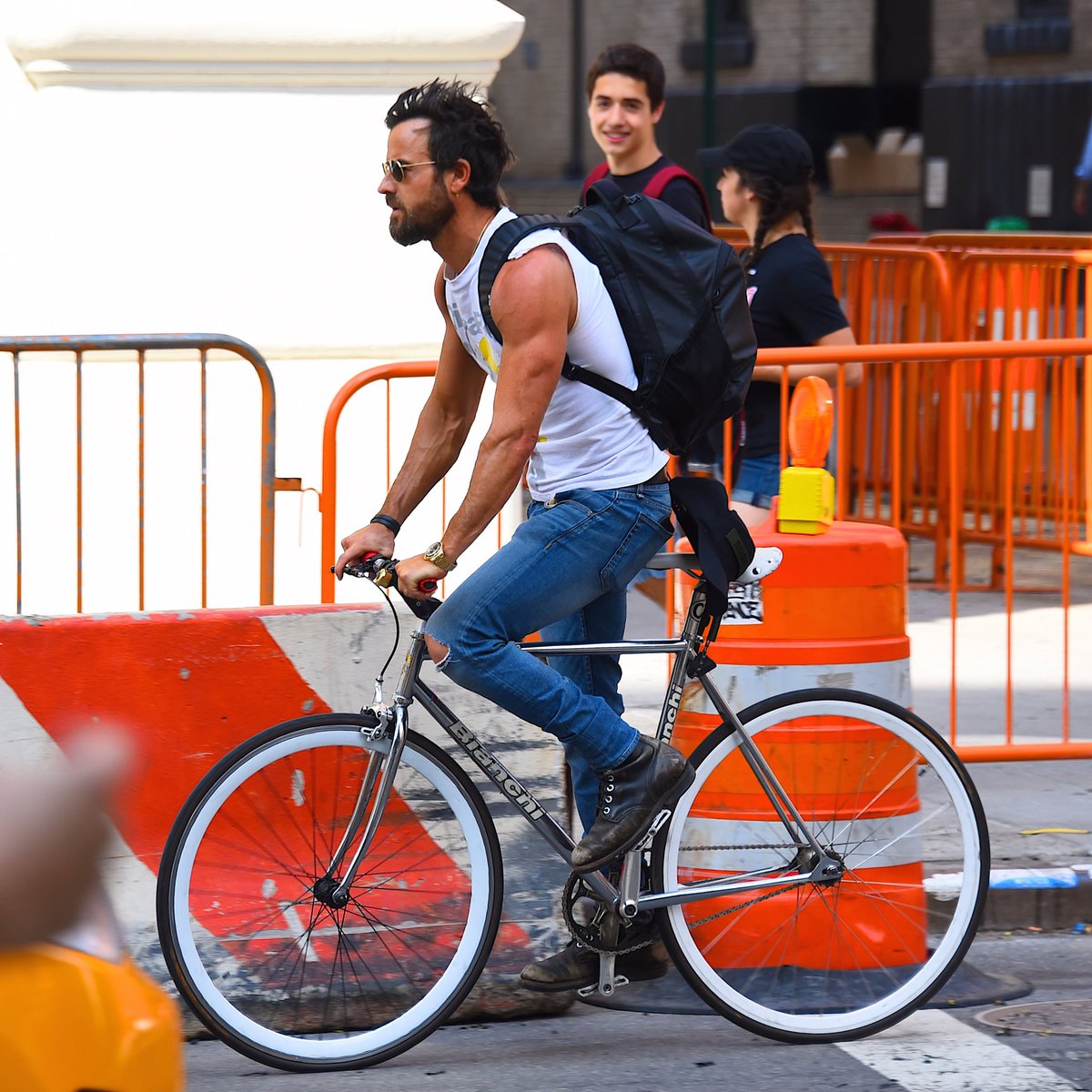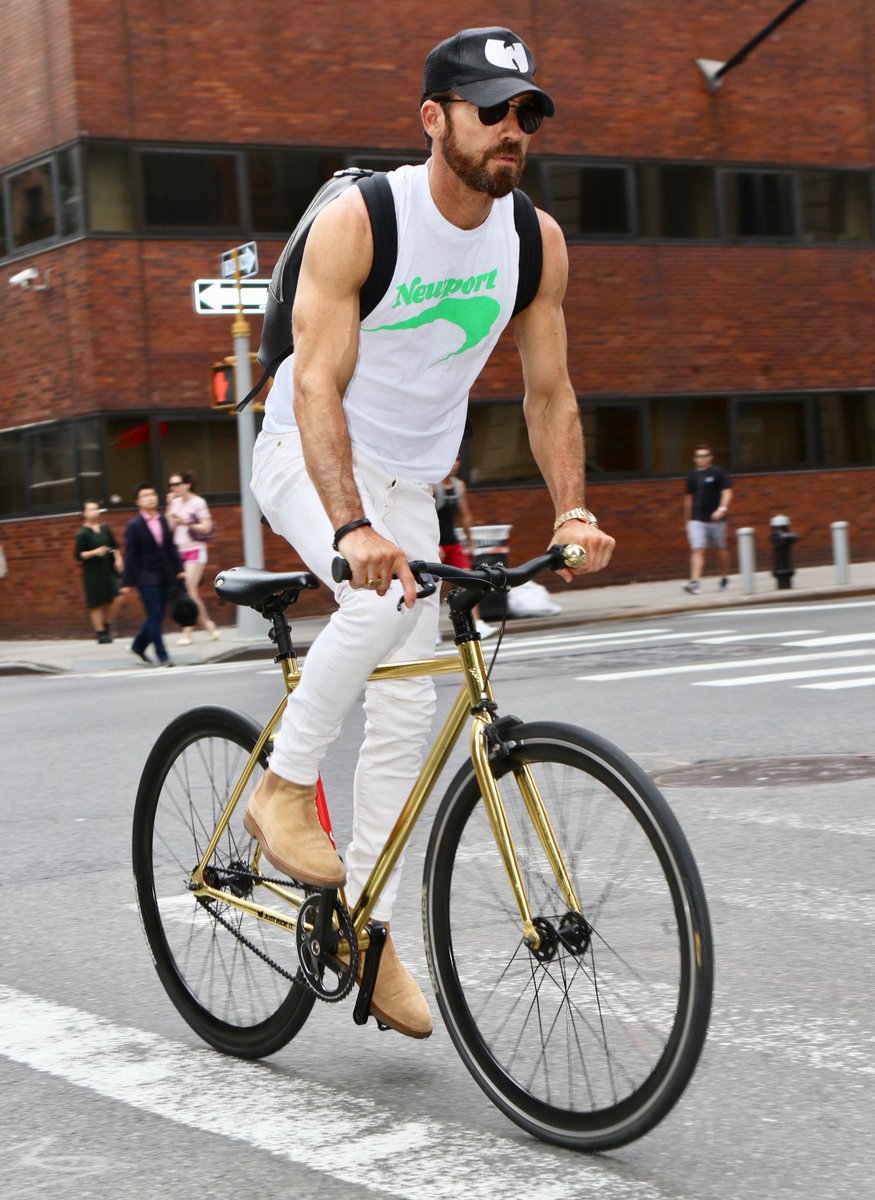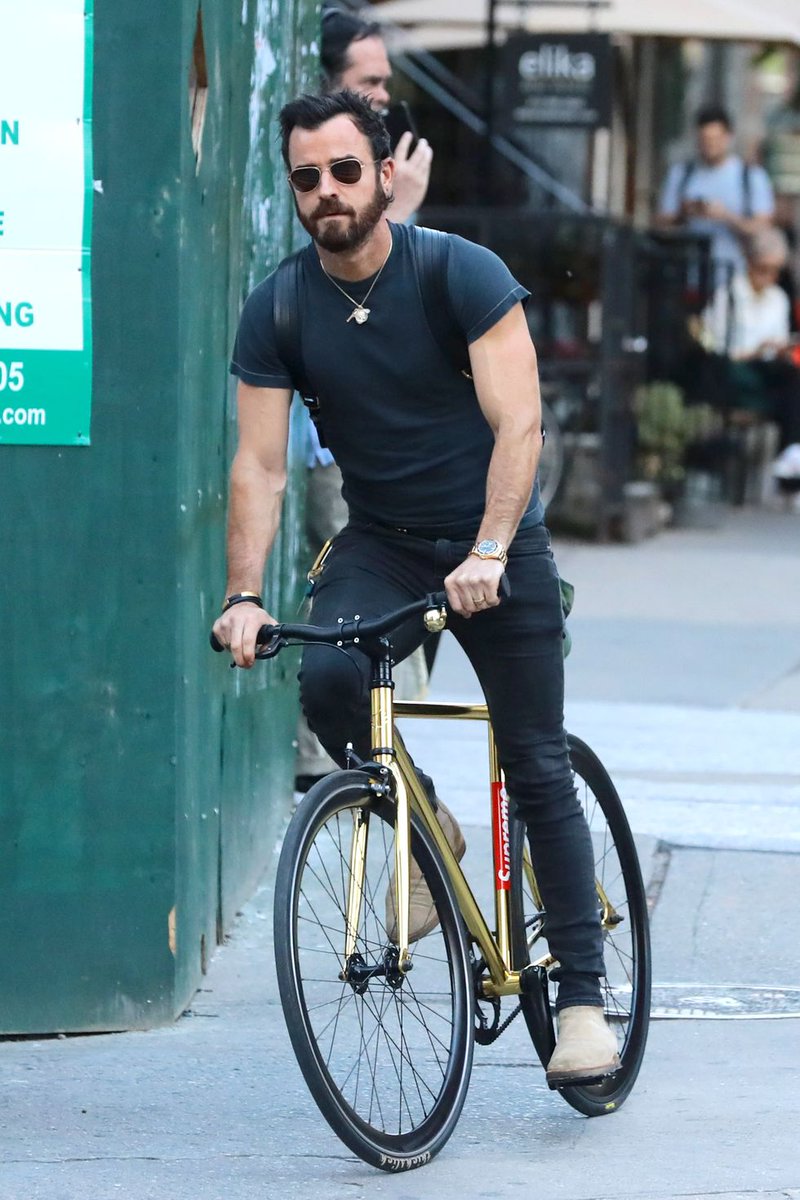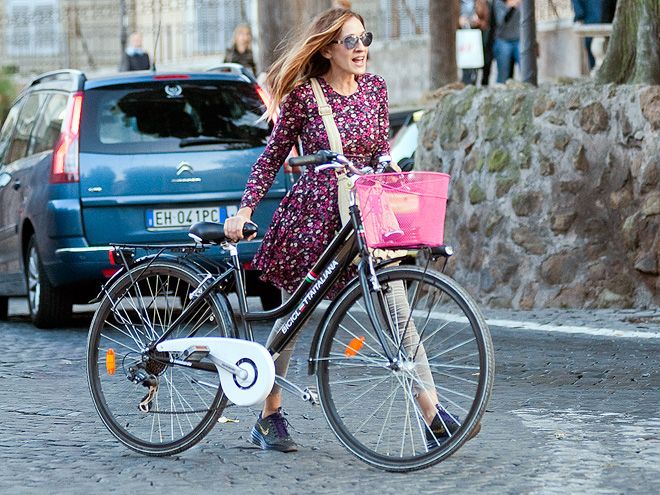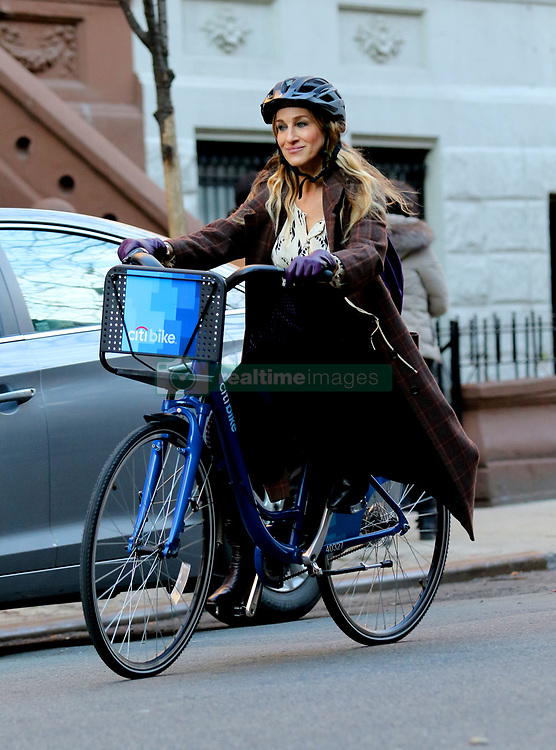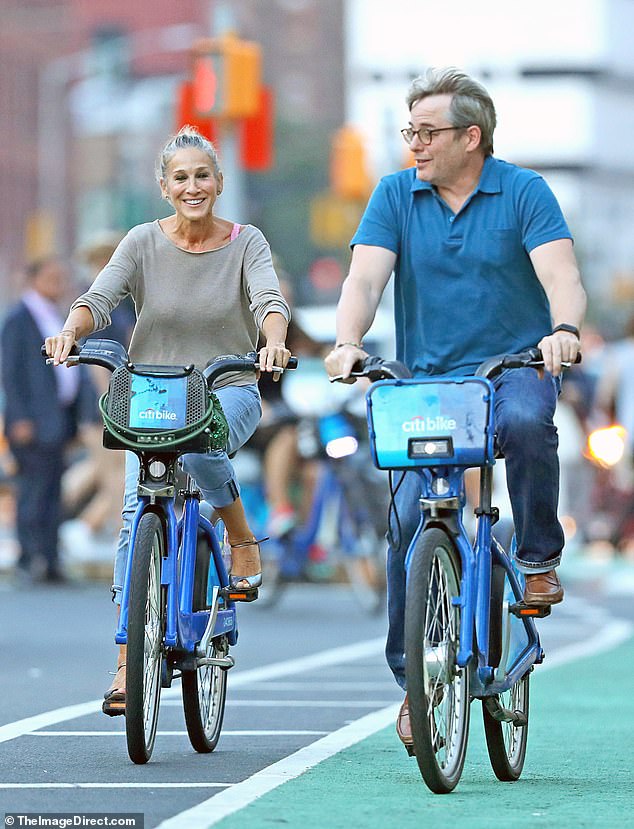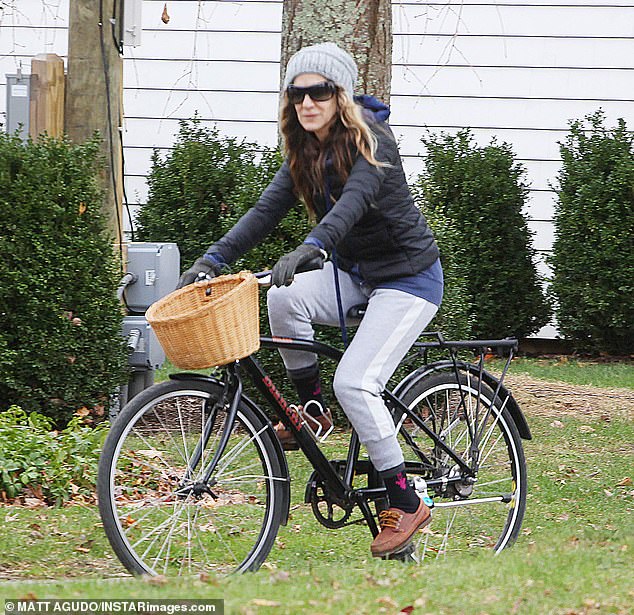
Just a year ago I was someone who resented cyclists in London. I never imagined that I could ever be one of them.
Now, city cycling is one of the best parts of my life.
Here’s what helped me change my mind:
Now, city cycling is one of the best parts of my life.
Here’s what helped me change my mind:
Seeing people like me cycle joyfully made a huge difference.
That included young women, anxious women, women on upright bikes, women with fruit and veg, or even better — a new houseplant — in their basket, people wearing skirts or dresses.
Representation matters.
That included young women, anxious women, women on upright bikes, women with fruit and veg, or even better — a new houseplant — in their basket, people wearing skirts or dresses.
Representation matters.
But it wasn’t just seeing people like me. It was also seeing people who I thought were even less likely to cycle than me.
Pregnant women, elderly people, small children.
“If cycling was really as dangerous as I think it is, they wouldn’t be doing it” is what I thought.
Pregnant women, elderly people, small children.
“If cycling was really as dangerous as I think it is, they wouldn’t be doing it” is what I thought.
Seeing friends cycle who I knew were too frightened to do things I found unremarkable helped too.
Like girlfriends who wouldn’t walk alone at night commuting to work by bike.
Or folks who thought travelling to Beirut or Nairobi was dangerous but didn’t think twice about cycling
Like girlfriends who wouldn’t walk alone at night commuting to work by bike.
Or folks who thought travelling to Beirut or Nairobi was dangerous but didn’t think twice about cycling
(I want to make it clear that I’m pretty ashamed of those last two — but it genuinely made a difference to my perception of how safe cycling is and if we’re going to understand what changes minds, we need honest self reflection).
On the representation issue: one thing that didn’t help me change my perception of the safety of cycling was how it’s portrayed in film.
One Day, City of Angels and the new Tomb Raider were the films with female cycles that stood out in my mind.


One Day, City of Angels and the new Tomb Raider were the films with female cycles that stood out in my mind.



*spoilers for those films here*
In One Day, Anne Hathaway is killed after being hit by a lorry while cycling.
In City of Angels, Meg Ryan is killed after being hit by a lorry while cycling.
In Tomb Raider, LARA CROFT gets hit by a car while cycling and survives but STILL
In One Day, Anne Hathaway is killed after being hit by a lorry while cycling.
In City of Angels, Meg Ryan is killed after being hit by a lorry while cycling.
In Tomb Raider, LARA CROFT gets hit by a car while cycling and survives but STILL
It wasn’t just representation made the difference though.
A big thing was all of the messages I was hearing from the government, from the NHS and from others I respected that society NEEDED me to cycle. That space on roads and buses and trains was needed by key workers.
A big thing was all of the messages I was hearing from the government, from the NHS and from others I respected that society NEEDED me to cycle. That space on roads and buses and trains was needed by key workers.
Cycling as a means of transportation went from feeling like an aspiration to a responsibility.
And as an extension of that, schemes like LTNs and pop-cycle lanes made me feel like I had permission to use the streets to cycle. For the first time ever I felt welcome on the roads.
And as an extension of that, schemes like LTNs and pop-cycle lanes made me feel like I had permission to use the streets to cycle. For the first time ever I felt welcome on the roads.
Once I did (timidly) start cycling, the loud and consistent encouragement I got from the cycling community made me fall in love with them, and made me even more committed to want to be one of them. I’d never felt more welcomed.
From that point, the benefits of cycling were clear to me:
- I had control over my journey
- I could take detours to explore if I wanted
- I could stop for a coffee or a snack or a rest or anything
- I’d found an easy way of exercising
- Transport was suddenly free
- I had control over my journey
- I could take detours to explore if I wanted
- I could stop for a coffee or a snack or a rest or anything
- I’d found an easy way of exercising
- Transport was suddenly free
Now, it’s important to say that none of the points in the last tweet would have been enough to get me on a bike in the first place.
Not because I didn’t think they were true, but because I didn’t think they were possible for me.
I needed all the other stuff first.
Not because I didn’t think they were true, but because I didn’t think they were possible for me.
I needed all the other stuff first.
The arguments we usually use to try and get people cycling are enough to keep people on their bikes, but at least in my case, wouldn’t have been enough to get me there in the first place.
For that I needed representation, safe space and encouragement.
For that I needed representation, safe space and encouragement.
For experienced cyclists wanting to help get more folk cycling: I’d encourage you to be vulnerable.
Share your insecurities from when you started, or if they’re too distant to remember, normalise mistakes like falling off your bike, or wheeling it up a hill or busy intersection
Share your insecurities from when you started, or if they’re too distant to remember, normalise mistakes like falling off your bike, or wheeling it up a hill or busy intersection
I don’t know if cyclists realise just how mythic and unattainable their way of existing feels to folks who haven’t unlocked it yet.
The bridge between non-cyclist and cyclist is actually pretty tiny — but it definitely doesn’t feel that way before you’ve crossed it
The bridge between non-cyclist and cyclist is actually pretty tiny — but it definitely doesn’t feel that way before you’ve crossed it
Now, I feel totally ashamed for how long I spent quietly resenting cyclists. I’m embarrassed that I put myself in one category and me in another. It’s especially mortifying given how welcoming and loving the cycling community has been to me.
I wanted to be honest about it here though because I think it’s a big thing holding folks back at the moment and it’s even harder to open up about when you don’t feel a part of the community.
I hope you can forgive me ❤️
I hope you can forgive me ❤️
I talk about changing my mind about cycling (among a whole bunch of other things) in the first episode of the @NewRoadRage. the-new-road-rage.simplecast.com/episodes/road-…
@NewRoadRage If you are a woman who is comfy on a bike and looking for ways to help others get there too -- then check out @JoyridersLondon
They're in the process of expanding their operations and are looking for ride leaders across London.
More here: eventbrite.co.uk/e/information-…
They're in the process of expanding their operations and are looking for ride leaders across London.
More here: eventbrite.co.uk/e/information-…
https://twitter.com/SarahJ_Berry/status/1358469512434241536
• • •
Missing some Tweet in this thread? You can try to
force a refresh

